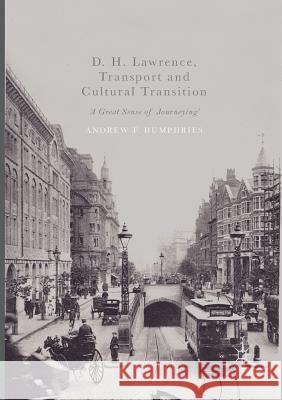D. H. Lawrence, Transport and Cultural Transition: 'A Great Sense of Journeying' » książka
topmenu
D. H. Lawrence, Transport and Cultural Transition: 'A Great Sense of Journeying'
ISBN-13: 9783319844961 / Angielski / Miękka / 2018 / 297 str.
D. H. Lawrence, Transport and Cultural Transition: 'A Great Sense of Journeying'
ISBN-13: 9783319844961 / Angielski / Miękka / 2018 / 297 str.
cena 344,56 zł
(netto: 328,15 VAT: 5%)
Najniższa cena z 30 dni: 344,56 zł
(netto: 328,15 VAT: 5%)
Najniższa cena z 30 dni: 344,56 zł
Termin realizacji zamówienia:
ok. 16-18 dni roboczych.
ok. 16-18 dni roboczych.
Darmowa dostawa!
Kategorie:
Kategorie BISAC:
Wydawca:
Palgrave MacMillan
Język:
Angielski
ISBN-13:
9783319844961
Rok wydania:
2018
Wydanie:
Softcover Repri
Ilość stron:
297
Waga:
0.37 kg
Wymiary:
21.01 x 14.81 x 1.65
Oprawa:
Miękka
Wolumenów:
01
Dodatkowe informacje:
Wydanie ilustrowane











